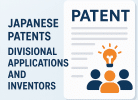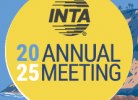Japan’s IP High Court (IPHC) is setting a trend to deny patented programs even if sent from servers outside of Japan, with its May 26, 2023 case DWANGO v. FC2. The IPHC rejects immunity to FC2 simply on grounds that the server it used to provide Japan-based users with infringing the claimed “computer system” the claims are infringed in Japan.
How Did DWANGO Win?
DWANGO Co., Ltd., a Japanese entertainment content consultation and management company based in Tokyo, owns a Japanese patent for a computer system to send comments within the video screen.[1,2] The patent claims both a “computer system” and a “server.” DWANGO sued FC2 (based in the USA) for cases when FC2 had used the claimed program on content it sent into Japan for users there. The lower Tokyo District Court turned down the plaintiff’s arguments because FC2’s servers were outside of Japan.[2]
Following the appeal by DWANGO, the IP High Court used its prerogative to seek third party opinions (第三者意見募集制度 like Amicus Brief)–for the first time since this program was enacted in 2022–and received 52 opinions.[1,3]
Finally, the IP High Court gave its opinion (Docket number: Reiwa 4 [ne] 10046 appeal) overturning the previous decision, finding that (1) the sending of the program from an overseas server is part and parcel of the act of receiving it within Japan; (2) the users’ devices were performing the actual patented system within Japan; (3) the system actually was enacted within Japan; and (4) this effect caused by the defendant could cause financial damage to the plaintiff; hence, FC2 has actually infringed DWANGO’s patent.[1]. FC2 is liable for damages of about US$80,000.[3]
What’s the Takeaway?
This case has been likened to the “BlackBerry case” in the USA (NTP v. RIM [Fed. Cir. 2005]).[4] Cross-border infringement can happen even when part of the claims (in this case, namely, a server) is not within Japanese territory. Providers of services to those within Japan will need to beware the patents owned within Japan. And, if you have a patent within Japan, remember that it may have power against programs sent into Japan for you, too.
* The information provided on this website is for informational purposes only and is not intended as legal advice.
** For questions or consultation, please contact Taro Yaguchi or our firm for more information.
Sources
[1] Press release. “FC2等に対する特許権侵害訴訟の控訴審大合議判決に関するお知らせ [Concerning the Grand Panel appeal decision over patent infringement by FC2 et. al].” https://dwango.co.jp/news/6282152199061504/ Dwango. May 26, 2023. Accessed June 10, 2023.
[2] Hino, Mami, Naho Ebata, and Shoichiro Kajinami. “Japan IP High Court’s first-ever decision allowing patent enforcement against infringing acts partially committed outside of Japan” https://patentblog.kluweriplaw.com/2022/12/12/japan-ip-high-courts-first-ever-decision-allowing-patent-enforcement-against-infringing-acts-partially-committed-outside-of-japan/ Kluwer Patent Blog. December 12, 2022. Accessed June 10, 2023. (Primarily referring to a previous case but touching on this case.)
[3] Japan Broadcasting Corporation (NHK). “Court sides with Japanese firm in cross-border patent infringement suit.” https://www3.nhk.or.jp/nhkworld/en/news/20230526_33/ May 26, 2023. Accessed June 10, 2023.
[4] IPStart Co., Ltd. “Grand Panel Decision of the IP High Court – Dwango v. FC2 No. 10046(Ne) 2021.” https://ipstart.jp/en/grand-panel-decision-on-dwango-case/ June 4, 2023. Accessed June 10, 2023.
Header image by Michal Jarmoluk from Pixabay






